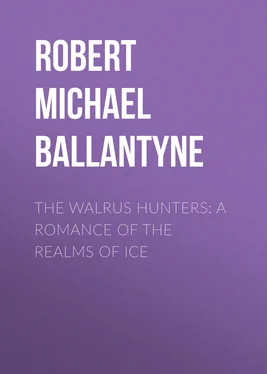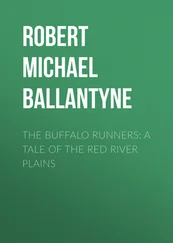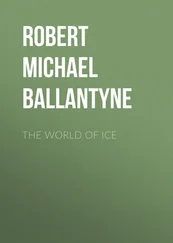Robert Michael Ballantyne - The Walrus Hunters - A Romance of the Realms of Ice
Здесь есть возможность читать онлайн «Robert Michael Ballantyne - The Walrus Hunters - A Romance of the Realms of Ice» — ознакомительный отрывок электронной книги совершенно бесплатно, а после прочтения отрывка купить полную версию. В некоторых случаях можно слушать аудио, скачать через торрент в формате fb2 и присутствует краткое содержание. Жанр: Детские приключения, literature_19, foreign_antique, foreign_prose, foreign_children, на английском языке. Описание произведения, (предисловие) а так же отзывы посетителей доступны на портале библиотеки ЛибКат.
- Название:The Walrus Hunters: A Romance of the Realms of Ice
- Автор:
- Жанр:
- Год:неизвестен
- ISBN:нет данных
- Рейтинг книги:3 / 5. Голосов: 1
-
Избранное:Добавить в избранное
- Отзывы:
-
Ваша оценка:
- 60
- 1
- 2
- 3
- 4
- 5
The Walrus Hunters: A Romance of the Realms of Ice: краткое содержание, описание и аннотация
Предлагаем к чтению аннотацию, описание, краткое содержание или предисловие (зависит от того, что написал сам автор книги «The Walrus Hunters: A Romance of the Realms of Ice»). Если вы не нашли необходимую информацию о книге — напишите в комментариях, мы постараемся отыскать её.
The Walrus Hunters: A Romance of the Realms of Ice — читать онлайн ознакомительный отрывок
Ниже представлен текст книги, разбитый по страницам. Система сохранения места последней прочитанной страницы, позволяет с удобством читать онлайн бесплатно книгу «The Walrus Hunters: A Romance of the Realms of Ice», без необходимости каждый раз заново искать на чём Вы остановились. Поставьте закладку, и сможете в любой момент перейти на страницу, на которой закончили чтение.
Интервал:
Закладка:
R. M. Ballantyne
The Walrus Hunters: A Romance of the Realms of Ice
Chapter One.
A Romance of the Ice-World. A Surprise, a Combat, and a Feed
There is a river in America which flows to the north-westward of Great Bear Lake, and helps to drain that part of the great wilderness into the Arctic Sea.
It is an insignificant stream compared with such well-known waterways as the Mackenzie and the Coppermine; nevertheless it is large enough to entice the white-whale and the seal into its waters every spring, and it becomes a resting-place for myriads of wild-fowl while on their passage to and from the breeding-grounds of the Far North.
Greygoose River was the name given to it by the Dogrib Indians who dwelt in its neighbourhood, and who were wont, every spring and autumn, to descend its waters nearly to the sea in quest of game. The Eskimos, who, coming from the mysterious north, were in the habit of ascending it a short way during open water in pursuit of their peculiar prey, named it Whale River.
The Indians and Eskimos did not often meet while on these trips. They did not like meeting, because the result was apt to be disastrous. Besides, the land was wide and the game plentiful enough for both, so that they were not much tempted to risk a meeting. Occasionally, however, meetings and encounters did take place, and sometimes bitter feuds arose, but the possession of fire-arms by the Indians—who were supplied by the fur-traders—rendered the Eskimos wary. Their headstrong courage, however, induced the red men to keep as much as possible out of their way. In short, there was a good deal of the spirit of “let-be for let-be” between the two at the time of which we write.
One morning in the spring-time of the year, soon after the floods caused by the melting snows had swept the ice clean out of Greygoose or Whale River, a sturdy young Eskimo urged his sharp kayak, or skin-covered canoe, up the stream in pursuit of a small white-whale. But the creature gave him the slip, so that, after an energetic chase, he turned his light vessel towards the left bank of the stream, intending to land.
Cheenbuk, for such was his name, was one of those sedate beings whose energies run calm and deep, like a mighty river. This feelings, whatever they might be, did not usually cause much agitation on the surface. Disappointment did not visibly depress, nor did success unduly elate him. The loss of the whale failed to disturb the placid look of grave contentment which sat on his good-looking countenance.
For it must be noted here that Cheenbuk was a handsome savage—if, indeed, we are entitled to style him a savage at all. His features were good, and strongly marked. His young beard and moustache were black, though not bushy. His dark eyes were large and full of tenderness, which expression, by an almost imperceptible raising of eyelid and contraction of brow, was easily transmuted into a gaze of ferocity or indignation. His bulky frame was clothed in the seal-skin garb peculiar to his people; his hair was straight, voluminous, and unkempt, and his motions gave indication of great strength combined with agility.
And no wonder, for a large part of our young Eskimo’s life had been spent in battling with the forces of Nature, and the hardships of life as displayed in the Arctic regions—to say nothing of frequent conflicts with the seal, the walrus and the polar bear.
Running his kayak among the rushes of a small inlet, Cheenbuk stepped out of the hole in its centre into the stream. The water was ankle-deep, but the youth suffered no discomfort, for he wore what may be styled home-made waterproof boots reaching to above the knees. These had been invented by his forefathers, no doubt, in the remote ages of antiquity—at all events, long before india-rubber had been discovered or Macintosh was born.
Drawing his little craft out of the water, the young man took some food from its interior, and was about to begin his truly simple meal by eating it raw, when a distant sound arrested his hand on the way to his mouth. He turned his head slightly on one side and remained for some moments like a singularly attentive statue.
Presently the voice of a wild-goose was faintly heard in the far distance. Evidently the young Eskimo desired a change of fare, for he laid down the slice of raw seal, on which he had been about to regale himself, and disengaged a long slender spear from the bow of his kayak.
It is well-known that wild-geese will, with proverbial stupidity, answer to an imitation of their cry, particularly in spring. Indeed, they will answer to a very bad imitation of it, insomuch that the poorest counterfeit will turn them out of their course and attract them towards the crier.
Availing himself of this weakness, our Eskimo hid himself behind a bush, and was opening his mouth to give vent to a stentorian goose-call when he was checked, and apparently petrified, by a loud report, which echoed among the neighbouring cliffs.
The youth knew the sound well. He had heard it only once before, but, once heard, it could never be forgotten. It was the gun, or, as his people called it, the fire-spouter, of an Indian. Plunging quietly into the underwood, he hastened towards the spot where a little wreath of smoke betrayed the position of what may be almost styled his hereditary foe.
Cautiously, carefully, and with a catlike motion that could hardly have been excelled by an Indian brave, Cheenbuk advanced until he reached the edge of a partially clear space, in which he beheld an Indian leisurely engaged in pushing the head of a large grey goose under his belt. At his side, leaning against a tree, was the long-barrelled fowling-piece, which he had just reloaded. It was one of those common, cheap, flint-lock affairs which were supplied by the fur-traders in those days.
The Indian was a tall, powerfully built middle-aged man, and, from his look and manner, was evidently unsuspicious of the presence of a foe. He seemed to be quite alone.
The Eskimo poised his light spear, but hesitated to launch it. He shrank from killing a defenceless foe. The hesitation betrayed him, for at the moment the sharp ear of the red man heard, and his eye discovered him.
The gun flew to the Indian’s shoulder, and the Eskimo launched his spear, but by good fortune both weapons failed. The well-directed spear was cleverly dodged, and the gun missed fire.
To re-cock the weapon, take a more deadly aim, and pull the trigger, was the work of three seconds; but again the flint proved faithless. Cheenbuk, however, divined the meaning of the attempt, and sprang upon his foe to prevent a repetition of the action, though he was now practically unarmed,—for the little stone knife which he carried in his bosom was but ill suited for deadly combat.
The Indian clubbed his gun to meet the onset, but the Eskimo, evading the first blow, caught hold of the weapon with both hands, and now began a fierce and prolonged struggle for possession of the “fire-spouter.”
Both hands of each combatant being engaged, neither could venture to draw his knife, and, as the men were pretty equally matched, both as to size and strength, they swayed to and fro with desperate energy for a considerable time, each endeavouring to throw the other, while the sweat poured down their faces and their breathing came in fitful gasps.
At length there was a pause in the conflict. It seemed as if they had stopped by mutual consent to recover breath for a final effort.
As they glared into each other’s faces, each felt surprised to see little or nothing of the evidence of that deadly hatred which usually characterises implacable foes. Suddenly Cheenbuk relaxed his grip of the gun and stepped back a pace. In so doing he put himself, to some extent at least, at the mercy of his adversary. With quick perception the Indian recognised the fact. He drew himself up and dropped the gun on the ground.
Читать дальшеИнтервал:
Закладка:
Похожие книги на «The Walrus Hunters: A Romance of the Realms of Ice»
Представляем Вашему вниманию похожие книги на «The Walrus Hunters: A Romance of the Realms of Ice» списком для выбора. Мы отобрали схожую по названию и смыслу литературу в надежде предоставить читателям больше вариантов отыскать новые, интересные, ещё непрочитанные произведения.
Обсуждение, отзывы о книге «The Walrus Hunters: A Romance of the Realms of Ice» и просто собственные мнения читателей. Оставьте ваши комментарии, напишите, что Вы думаете о произведении, его смысле или главных героях. Укажите что конкретно понравилось, а что нет, и почему Вы так считаете.












